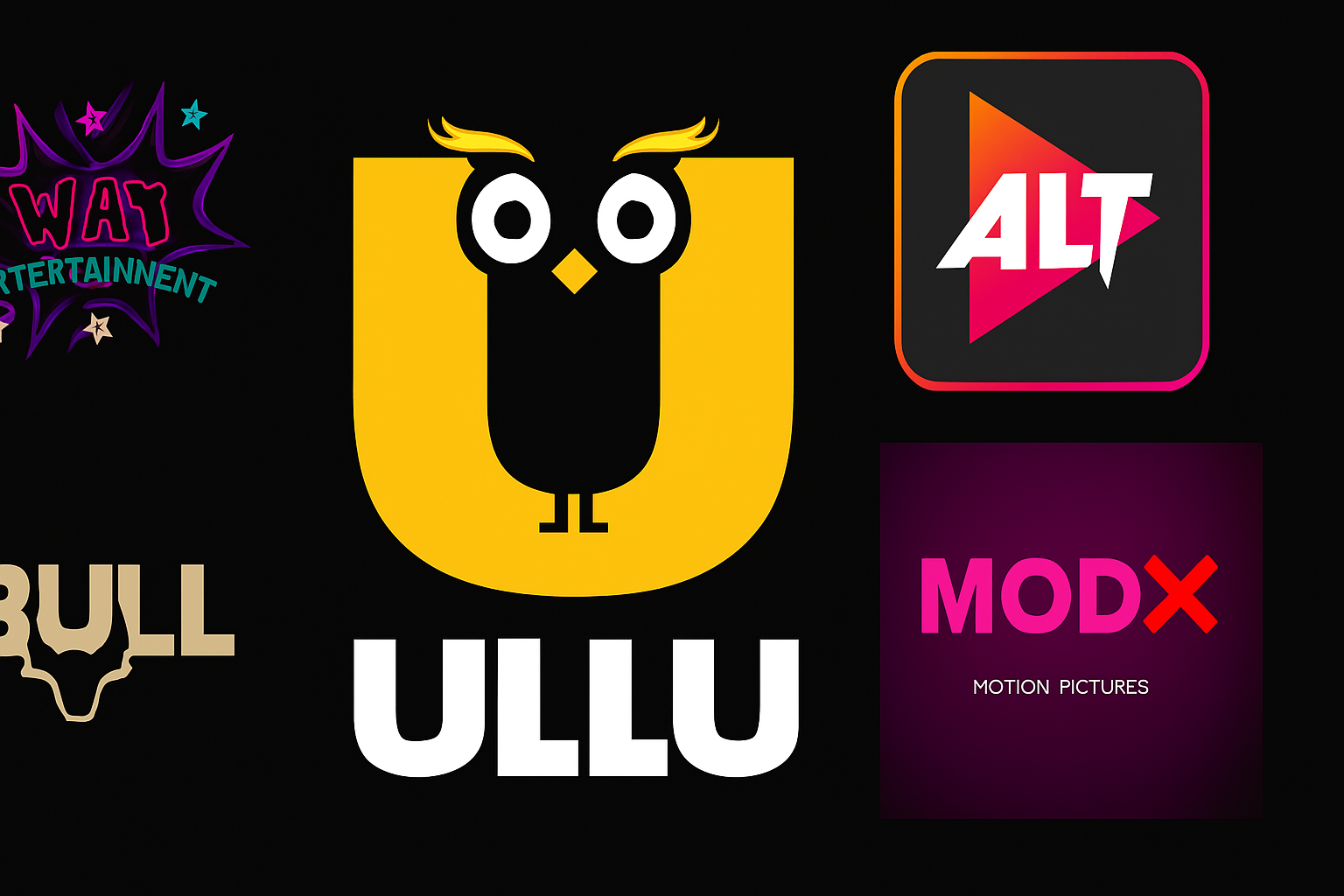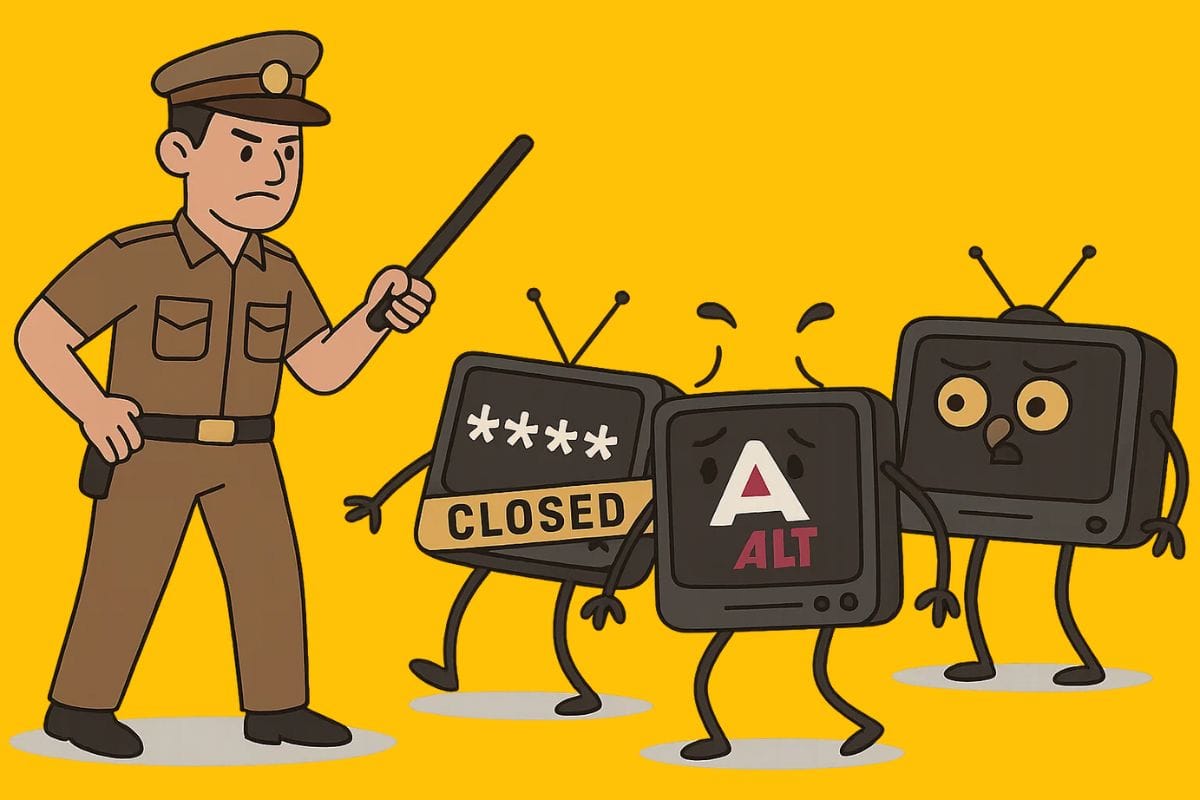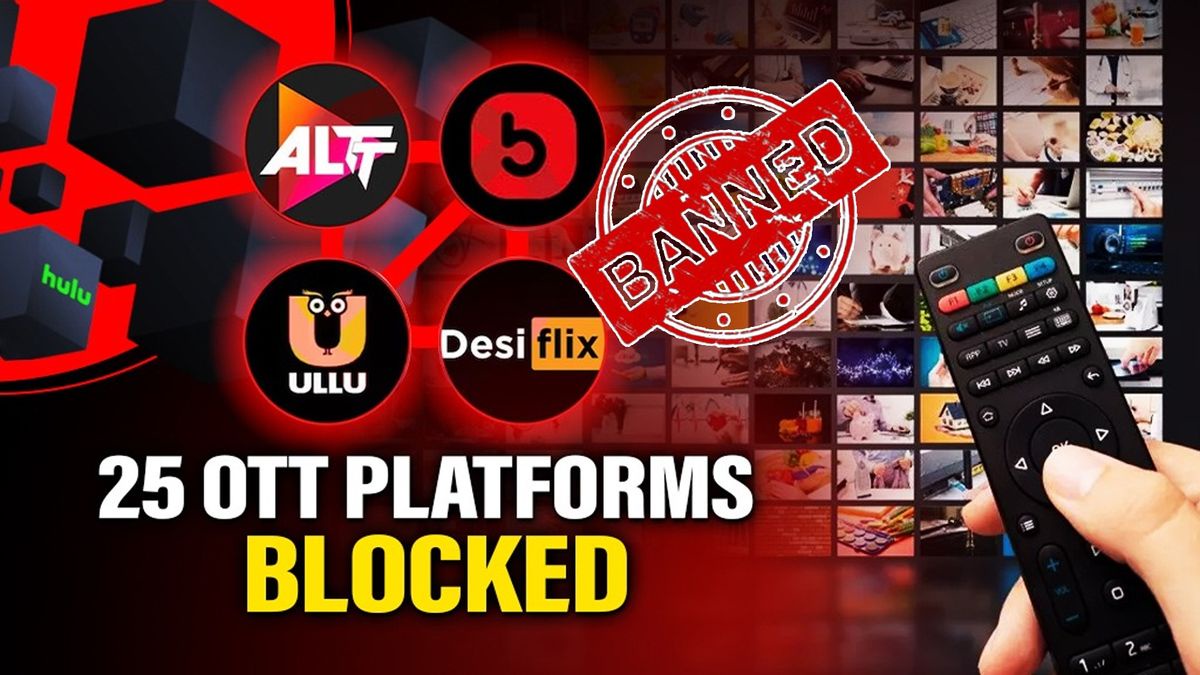In a major shake-up for the digital entertainment industry, the Indian government has taken decisive action against OTT platforms accused of streaming explicit and sexually suggestive content. Among the most high-profile names facing the ban are ULLU, Desiflix, ALTT, and several others that had built their platforms around bold web series and adult-themed narratives.

The Ministry of Electronics and Information Technology issued the ban after mounting complaints from the public and digital rights watchdogs. These platforms, often promoted as homes for edgy and erotic storytelling, were found to be hosting what many described as unregulated soft porn disguised as web entertainment. The criticism reached a peak on social media where users raised serious concerns about the growing normalization of such content and its easy availability to minors.
According to the ministry, the affected platforms were in violation of multiple provisions under the Information Technology Act of 2000. Specifically, Sections 67 and 67A deal with the publishing and transmission of obscene material in electronic form. Additionally, the platforms were found to be flouting Section 294 of the Bharatiya Nyaya Sanhita and Section 4 of the Indecent Representation of Women (Prohibition) Act.
In total, over 20 apps including Big Shots, MoodX, NeonX, ShowX, Jalva, Look Entertainment, Bull App, and Hulchul were flagged. These platforms collectively pushed content that regulators argued was beyond acceptable limits for digital media, often featuring scenes that would not pass certification in traditional formats.

What makes this crackdown especially notable is that it also included the removal of related websites and social media handles. This is part of a broader trend by Indian authorities to clean up the OTT space by holding digital publishers accountable to ethical and legal content standards. Officials cited the Information Technology (Intermediary Guidelines and Digital Media Ethics Code) Rules of 2021, which mandate intermediaries to take immediate action against the spread of illegal or objectionable content.
This isn’t the first time the government has intervened in digital entertainment. Earlier in March, 19 websites, 10 mobile applications, and 57 social media handles linked to 18 OTT platforms were also banned for spreading obscene material.
The implications of this move are significant. It signals a tougher stance on adult content distribution and the ethical boundaries of streaming in India. While some argue that the bans may stifle creative freedom, others see it as a much-needed cleanup in an OTT space that has largely operated without strict oversight.
As the digital landscape continues to evolve, the challenge for content creators and platforms will be finding the balance between bold storytelling and socially responsible broadcasting. For now, the message from the authorities is loud and clear platforms must adhere to content ethics, or risk being shut down.
For more updates on OTT bans, streaming controversies, and digital media regulation, follow Binge Moves on Instagram and Facebook.











